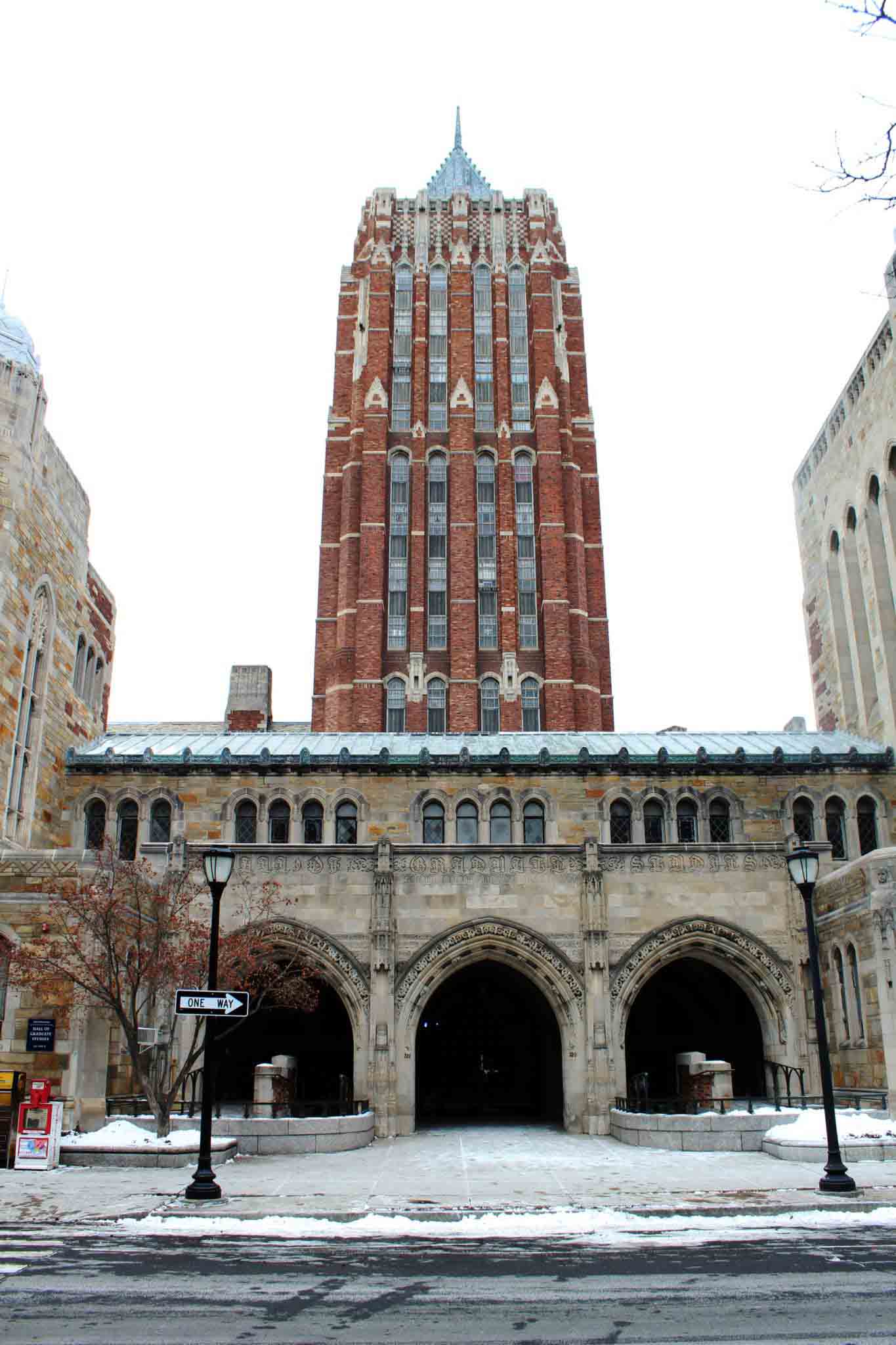
Alex Schmeling
The search for a new dean of the humanities has inspired faculty members and administrators to both reflect on the post’s achievements as well as reconsider tactics to increase support for the office and the discipline it oversees.
Over the summer, Amy Hungerford, former dean of the humanities, announced that she accepted a position at Columbia University as their dean of the Faculty of Arts and Sciences, effective Jan. 1, 2020. In the meantime, an advisory committee — comprised of faculty members spanning the humanities disciplines and one representative from the social sciences — will compile names of potential candidates to be delivered to Yale FAS Dean Tamar Gendler. That committee hopes to present four to six names to Gendler by the end of the fall term, according to Gendler. She said that the candidates will likely be current Yale faculty members but added that they could include interested faculty members who will begin in the spring or fall of 2020.
“The committee and Dean Gendler are looking for a researcher, thinker, and communicator who understands and is enthusiastic about the rich array of humanities work being done here,” Paul North, Germanic languages and literatures professor and chair of the advisory committee, wrote in an email to the News. “The challenge of finding someone is the abundance of faculty members with these qualities at Yale!”
Both Gendler and North praised the work done by Hungerford during her time in the role — where she oversaw more than 20 departments and programs in the humanities division of the FAS. While in charge of the division as the inaugural dean, Hungerford led the University Humanities Strategy Committee and facilitated the ongoing transformation of 320 York Street into a humanities hub. Professor of Religious Studies Kathryn Lofton will serve as interim dean of the humanities for this school year.
The FAS Dean of Humanities oversees a wide range of disciplines which fall under its purvey, making the position broad and often removed from faculty view. Three professors interviewed by the News reported limited interactions with the Humanities dean. North said he experienced limited contact with the divisional dean due to his professorial status, adding that chairs communicate more frequently with such administrative positions.
Still, lector of Ottoman Turkish Ozgen Felek said that as a non-ladder faculty member, she hopes that the new dean will be more visible on campus and will interact more with faculty members at all levels.
Classics professor Emily Greenwood said the Humanities, comprised of many different programs and departments, presents a challenge for the Dean of Humanities. She said that the breadth within the discipline necessitates a strong humanities advisory committee to advise the dean on the various divisions and help individual departments establish their academic priorities. The committee’s responsibilities include overseeing the recruitment and appointment of ladder faculty.
She added that administrative support for the Dean of the FAS office is low relative to other universities. This lack of staffing means that the office must shoulder a heavy load of responsibilities, which include significant attention to tenure and appointments cases.
“Dean Hungerford put a lot of thought into collaboration within the Humanities division, but more can be done and this will rely on strong support and recognition from Humanities faculty that this is a collective project for all of us,” Greenwood said. “In short, we need to continue tweaking existing structures in FAS so that they inspire and enable greater intellectual community in the Humanities.”
Gendler said that while Yale’s position is broad, “it is no broader” than those of many Ivy+ peer institutions.
Hungerford had just accepted her appointment to her second five-year term in April of this year before announcing her decision to leave the University on July 1. Gendler said that her office was “extremely proud” of Yale’s “long and proud tradition of training” academics who go on to accept leadership positions at other institutions.
Still, Felek said she has seen Yale overturn too many faculty members in favor of deanships at peer institutions. She noted that she does not recall as many such departures during her time studying and working at the University of Michigan and Stanford University. Still, she added that it is possible that these institutions simply did not make as many public announcements regarding such changes.
The advisory committee will include North, Art History associate professor Cécile Fromont, English professor Langdon Hammer, East Asian languages and literatures professor and Pauli Murray College Head Tina Lu, History Department Chair Alan Mikhail, Political Science professor Ian Shapiro and FAS Senior Associate Dean John Mangan.
Carly Wanna | carly.wanna@yale.edu







